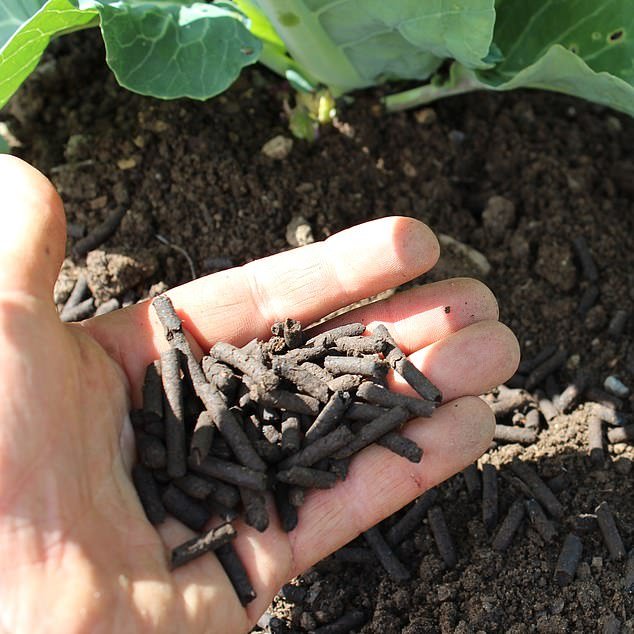Scientists want to grow vegetables using human urine – and reveal how YOU can do it at home
Scientists are urging people to recycle their urine in the vegetable garden, claiming it could be a useful tool for putting food on the table.
Farmers spend $128,000 a year on synthetic fertilizers to grow their crops, but urine could provide a cost-effective alternative because it contains nitrogen and phosphorus that are essential to maintain and promote crop growth.
Cow manure is currently used to grow crops, but scientists have argued that urine is not that different and could provide an environmentally friendly alternative to flushing urine down the toilet.
The nitrogen found in urine pollutes the ocean by causing algae to grow at an excessive rate, suffocating coral and poisoning marine life. Scientists shared a mixture to use urine in your own garden.
Adults flush an average of 132 liters of urine every year, which can be converted into an odorless, cost-effective fertilizer for crops

Farmers currently use synthetic fertilizer (pictured), which can cost about $128,000 per year
The average person flushes about 132 liters of urine every year, which can be converted into 13 kilos of fertilizer.
“Our urine is worth its weight in gold,” said researcher Divina Gracia P. Rodriguez ScienceNorway.
“Think of all the fertilizer we’re missing out on,” she continued. ‘It’s high time we started collecting and using our own waste.’
Researchers are developing toilets that can separate urine from residual water and have already started testing them in Bahir Dar, Ethiopia.
Once separated, the urine can be dried and turned into odorless, inexpensive pellets that can be spread over farmland to fertilize crops.
While the concept may not sound appealing to most, Anne Spurkland, professor and medical researcher at the University of Oslo, told ScienceNorway that it is “completely safe.”
Spurkland said there is a way to implement this method at home by mixing one part urine with nine parts water and spraying the liquid over the vegetables using a watering can with a narrow spout.
‘Soil bacteria convert the nitrogen into new building blocks that plants use,’ says Spurkland.
While the idea may seem bizarre, researchers at the University of Michigan confirmed in a 2020 study that urine manure can be used without fear that it could spread antibiotic-resistant infections.
Scientists were concerned that people who supplied urine to farmers could develop urinary tract infections (UTIs) that could contain DNA from the bacteria.
The study found that if urine is not spread fresh and left in an incubator for ten hours, there is a 99 percent drop in antibiotic resistance genes.
“People have been collecting urine and using it as fertilizer for a long time, but in the West that really stopped with the invention of the sewage system,” said Dr. Krista Wigginton, a co-author of the study. The guard.
“We’re just trying to figure out now with this infrastructure system that we have, how do we pull back and think differently about what’s going into this sewage system and capture some of those valuable products before (they) get mixed and diluted with everything else ?’
